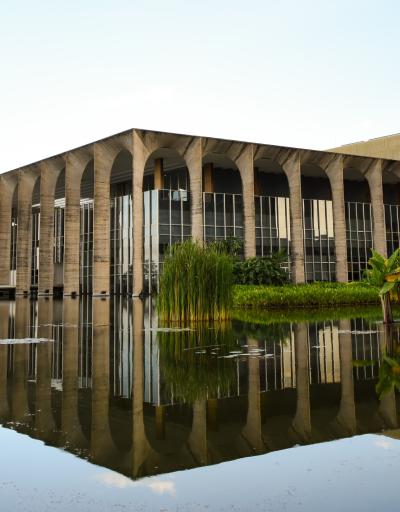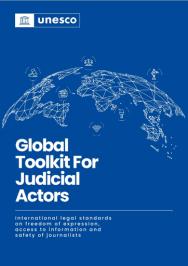
Freedom of Expression and and Safety of Journalists in Brazil
UNESCO Brasilia promotes freedom of expression and the safety of journalists through sensitisation and monitoring activities. It also fosters media independence and pluralism as prerequisites and significant democratisation factors, as well as peace and tolerance-building by providing advisory services on media legislation and sensitising governments, parliamentarians, and other decision-makers. Besides, UNESCO seeks to strengthen professional standards through capacity-building and self-regulation mechanisms (such as codes of ethics, press councils and in-house news ombuds).
Brazil’s Federal Constitution guarantees broad access to information from different and multiple sources within a democratic environment where freedom of speech and the press are ensured. However, the country still faces some gaps in the media regulatory framework. Thus, its legislation still needs to fully respond to the new Brazilian social and political contexts and the impacts of the technological revolution in communication and information.

Press Freedom on All Platforms
As the UN agency with a specific mandate to foster freedom of expression and its corollaries, press freedom and freedom of information, UNESCO sees these rights as crucial foundations of democracy, development and dialogue and as preconditions for protecting and promoting all other human rights.
UNESCO facilitates multi-stakeholder dialogue and mobilises advisory services toward legal and regulatory environments conducive to freedom of expression. Our actions seek to develop, following international standards, press and freedom of information legislation and a framework enabling freedom of expression on the Internet.

Capacity-building for Media Professionals in Brazil
There is an evident and increasing concern in the Brazilian context with journalism education's efficacy and efficiency, especially regarding their ability to qualify media professionals capable of covering sophisticated agendas.
There is a need to improve the quality of training institutions and universities for producing future journalists and expand the supply of tools for the cooperative efforts with editorial staff – especially of the community media – to ensure coverage more attuned to human rights and sustainable development agendas.

The Safety of Journalists in Brazil
UNESCO is committed to advancing the freedom of the press and the safety of journalists on all media platforms, offline and online, through various actions. These include awareness-raising, promoting partnerships, and coordinating the UN Plan of Action on the Safety of Journalists and the Issues of Impunity.
Since 1997, UNESCO’s Director-General has condemned each killing of a journalist. In addition, every two years, the Organization compiles a Report on The Safety of Journalists and the Issue of Impunity to the Intergovernmental Council of the International Programme for the Development of Communication (IPDC).


Resources on Safety of Journalists




